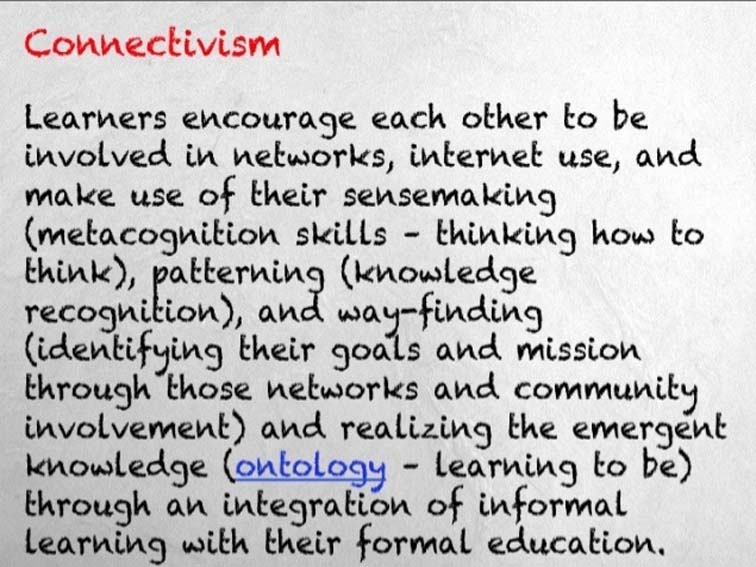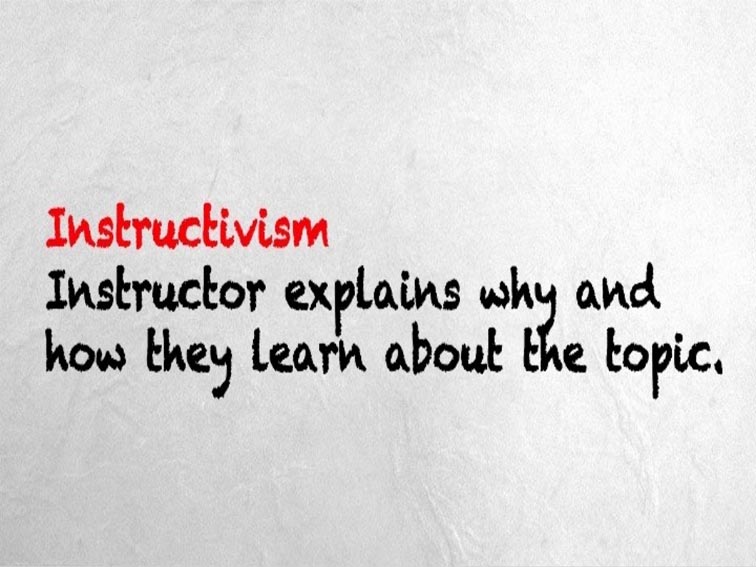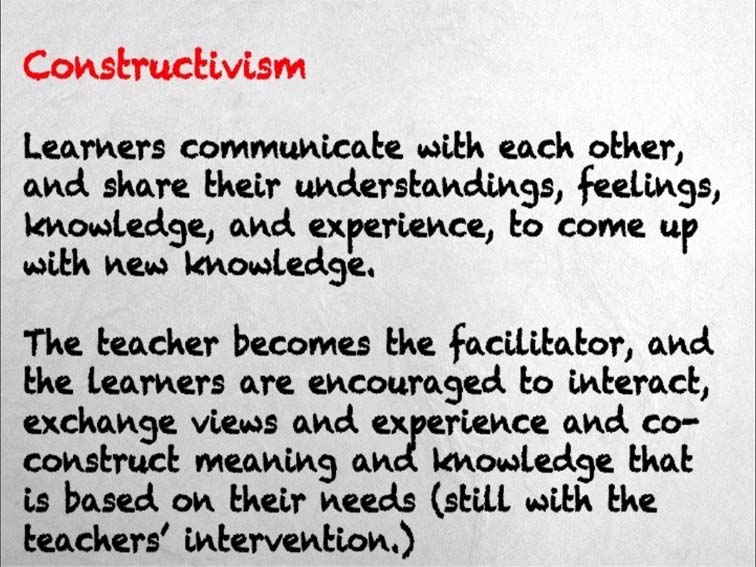
The Difference Between Instructivism, Constructivism, And Connectivism
by Terry Heick
We spend so much time in education trying to make things better.
Better policies.
Better technology.
Better standards.
Better curriculum.
Better instruction.
Better assessment.
Better response to assessment data.
And too with research, teacher collaboration, school design, parent communication, and so on. In fact, many of the ‘fads’ in education that ebb and flow are simply micro-experimentation with this macro and general notion of ‘better’–zooming in on one thing–whole child education, whole language reading, or gender-based classrooms, and so on.
So while viewing a presentation from Jackie Gerstein recently, I was stopped at the very simple distinction she made between instructivism, constructivism, and connectivism. These differences dovetail behind broader differences between pedagogy, andragogy, and heautagogy–fundamental assumptions about how and why people learn that have to be considered if our end goal is not to make students better at school, but rather to improve literacy and critical thinking for global citizens everywhere.
So as you focus in your PLC or staff meetings on better ‘research-based instruction,’ you’re looking at ways to improve how to better deliver instruction–more to understand how to better ‘give learning’ than to cause it.
The Difference Between Instructivism, Constructivism, And Connectivism
Instructivism is definitely more teacher and institutionally centered, where policy-makers and ‘power-holders’ create processes, resource-pools, and conditions for success.
Constructivism sees the teacher step aside to a new role as facilitator, pairing students with peers, learning processes, and another at key moments based on data and observation while the students create their own knowledge and even early learning pathways.
Connectivism is similar to constructivism–in fact, a learner participating in connectivism would likely do so at times with a constructivist approach. The difference here lies in the central role of relationships and networks in connectivism. Rather than supplemental, they are primary sources.
Gerstein’s definition appears below.
Instructivism

Constructivism

Connectivism


